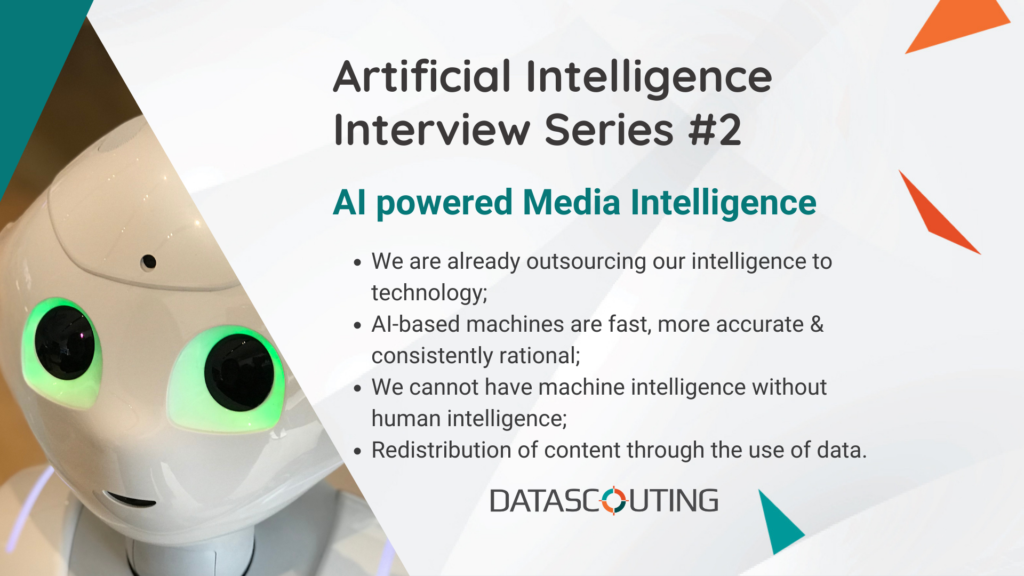Series of mini-interviews about Artificial Intelligence
Artificial Intelligence is essential in analyzing the massive volumes of data, now available, and convert them into actionable information, knowledge and insights.
We are asking Tom, Sophia and Stavros what is their perspective of Artificial Intelligence and its role related to ethics and trust, media intelligence industry and core value proposition of AI tools for IT.
In #1 we asked Tom Why is Artificial Intelligence important and how can we build trust? In #2 we are asking Sophia Karakeva, our Communications and Marketing Executive to tell us about the role of Artificial Intelligence in the media intelligence industry.
Q: How is Artificial Intelligence transforming the Media Intelligence industry?
Sophia: Artificial Intelligence is changing how companies work, how people perform certain tasks. We have reached the point where we are outsourcing our intelligence to technology and we trust machines to recognize language and speech, to write stories or to identify informational patterns that optimize trends. AI-based machines are fast, more accurate and consistently rational, but they are not intuitive, emotional or culturally sensitive. Therefore, we cannot have machine intelligence without human (authentic) intelligence as they are complimentary, making automated processes more efficient and accurate but also allowing us to be more creative and proactive.
Considering the current problems in the field of information, such as disinformation, the pile of information that misleads the public, but also the general lack of trust in the media, we at DataScouting wonder how new technologies can help address these problems with innovative media intelligence software solutions. We believe that Artificial Intelligence can benefit greatly the media intelligence industry. In a recent study, the Oxford University Reuters Institute found that 59% of the news industry already uses Artificial Intelligence tools to improve their content, while 35% use Artificial Intelligence to help journalists find stories, and “check” them by avoiding the reproduction of false news.
Machine Learning, on the other hand, can be useful to news agencies in simpler ways, such as faster transcription or text translation. However, the most important contribution is recognized as the effect on the redistribution of content through the use of data, which will help us better understand what the public is interested in, but also to ultimately give people the information they want and the in the format they want to consume it.
Like any new technology, Artificial Intelligence carries some risks. It is clear that we cannot allow the violation of our privacy or the use of algorithms that lead to discrimination. But it is also an opportunity to make our societies more just, socially and environmentally sustainable through regulatory systems of verification and public scrutiny.
Although the current EU liability framework covers most future scenarios, new technologies based on Artificial Intelligence will certainly bring some unresolved issues to the surface. Yet, the EU ‘s approach to Artificial Intelligence will boost citizens’ confidence in these technologies in order to adopt them, while encouraging their business development.






